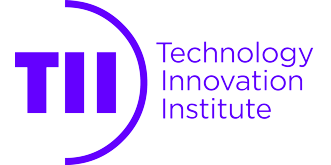Scope
With the deployment of 5G networks and the start of standardizing 5G-Advanced, both academia and industry are exploring actively into future technologies for next generation wireless communication systems. Reconfigurable intelligent surfaces (RISs) have been envisioned to reduce the energy consumption and improve the spectral efficiency of wireless networks by artificially re-configuring the propagation environment of electromagnetic waves. RIS-based transmission, in which the large number of small, low-cost, and passive elements on RIS only reflect the incident signal with an adjustable reflection amplitude and phase shift without requiring a dedicated energy source for radio frequency processing, decoding or encoding, is completely different from existing active relays and open up a new area of research for wireless communications. RISs are being discussed actively in regional and global standardization development organizations and are likely to become a critical component of 5G-Advanced networks.
The extensive research efforts devoted into this area can be seen as the first half of the game, while the second half will open the door for standardization and industrialization. How will RIS be standardized? What are the impacts to current 3GPP standards? What are the killer applications of RIS so that the network operators will benefit from the deployment? These are all questions worth thinking of during the second half of RIS research.
This panel of experts will be engaged in discussions of:
• Analysis of RIS-assisted communication capacities, with a focus on the typical scenarios identified by early standardization efforts
• Practical use cases for RIS in future networks, especially the ones which can bring practical values to network operators •• Design, testing and trials of RIS which will make impact to standardization of this particular technology •• Communication protocols for RIS-assisted communication systems
• Autonomous deployment of RIS in coherence with current 5G / 5G-A networks
Program
14:00 - 14:10 Welcome and Introduction By the Moderator
14:10 - 14:20 Invited Talk By Satoshi Nagata
14:20 - 14:30 Invited Talk By Qurrat-Ul-Ain Nadeem
14:30 - 14:40 Invited Talk By Ruiqi (Richie) Liu
14:40 - 14:50 Invited Talk By Daniel Benevides da Costa
14:50 - 15:30 Panel Discussion Moderated by the moderator
Panel Questions
- What are the key challenges to integrate RIS into commercial networks?
- The ITU-R WP5D has agreed on 6 usages scenarios along with new capabilities, how do you foresee the role of facilitating these scenarios / capabilities?
- Researches involving RIS would typically require the research team to build a prototype and conduct tests to verify some of their ideas. For smaller research teams which cannot afford a prototype, what are the possible ways to follow the research of RIS and contribute?
- Will RIS be really decreasing the overall power consumption of the network, as some suggest that RIS might also need dedicated power source?
- (To operators) Can you share some results regarding your trials on RIS deployed in 5G / 5G-Adv networks?
Moderator
Tianqi Mao (IEEE Member) received the B.S., M.S. (Hons.), and Ph. D (Hons.) degrees from Tsinghua University in 2015, 2018 and 2022, respectively. From 2022 to 2023, he was a Research Fellow with School of Electronic and Information Engineering, Beihang University, Beijing, China. He is now a Research Fellow with the School of Information and Electronics and the Advanced Research Institute of Multidisciplinary Science, Beijing Institute of Technology, Beijing, China. He has authored over 30 journal and conference papers in IEEE COMST, IEEE JSAC, IEEE WCM, IEEE COMMAG, IEEE TCOM, IEEE TVT, etc., including 2 Highly Cited Papers of ESI (as the first author). His main research interests include modulation and signal processing for terahertz communications, integrated sensing and communications, RIS-aided communications and visible light communications. He was a recipient of the 8th Young Elite Scientists Sponsorship Program by China Association for Science and Technology, the Science and Technology Award (Second Prize) of China Institute of Communications, the Excellent Master Dissertation of Chinese Institute of Electronics, the Special Scholarship of Tsinghua University, the Outstanding Ph.D. Graduate of Beijing City and the Outstanding Master Graduate of Tsinghua University. He is currently an Associate Editor of IEEE Communications Letters and IEEE Open Journal of Vehicular Technology, and a Guest Editor of IEEE Open Journal of the Communications Society. He was also the Exemplary Reviewer of IEEE Transactions on Communications and Communications Letters.
Panelists
Ruiqi (Richie) Liu, ZTE Corporation, China
Tentative topic of the talk: Industry progresses in prototyping, testing and standardization for RIS
Ruiqi (Richie) Liu (S'14-M'20) received the B.S. and M.S. degree (with honors) in electronic engineering from the Department of Electronic Engineering, Tsinghua University in 2016 and 2019 respectively. He is now a master researcher in the wireless research institute of ZTE Corporation, responsible for long-term research as well as standardization. His main research interests include reconfigurable intelligent surfaces, integrated sensing and communication and wireless positioning. He is the author or co-author of several books and book chapters. He has participated in national key research projects as the researcher or research lead. During his 3-year service at 3GPP from 2019 to 2022, he has authored and submitted more than 500 technical documents with over 100 of them approved, and he served as the co-rapporteur of the work item (WI) on NR RRM enhancement and the feature lead of multiple features. He currently serves as the Vice Chair of ISG RIS in the ETSI. He actively participates in organizing committees, technical sessions, tutorials, workshops, symposia and industry panels in IEEE conferences as the chair, organizer, moderator, panelist or invited speaker. He served as the guest editor for Digital Signal Processing and the lead guest editor for the special issue on 6G in IEEE OJCOMS. He serves as the Editor of ITU Journal of Future and Evolving Technologies (ITU J-FET) and the Associate Editor of IET Quantum Communication. He is the Standardization Officer for IEEE ComSoc ETI on reconfigurable intelligent surfaces (ETI-RIS) and the Standards Liaison Officer for IEEE ComSoc Signal Processing and Computing for Communications Technical Committee (SPCC-TC). He received the Outstanding Service Award from the SPCC-TC in 2022.
Satoshi Nagata, NTT DOCOMO, Japan
Tentative topic of the talk: RIS for Green and Sustainable Networks: An Operator’s View
Satoshi Nagata received his B.E. and M.E. degrees from Tokyo Institute of Technology, Tokyo, Japan, in 2001 and 2003, respectively. In 2003, he joined NTT DOCOMO, INC. He worked on the research and development for wireless access technologies for LTE, LTE-Advanced, and 5G. He had contributed to 3GPP over 15 years, and contributed 3GPP TSG-RAN WG1 as a vice chairman during November 2011 to August 2013, and contributed as a chairman during August 2013 to August 2017. He had also contributed 3GPP TSG-RAN as a vice chairman during March 2017 to March 2021, and currently a vice chairman of 3GPP TSG-SA since March 2021.
Daniel Benevides da Costa, TII, UAE
Tentative topic of the talk: Reconfigurable Intelligent Surfaces: Current Challenges and The Road Towards 6G
Daniel Benevides da Costa was born in Fortaleza, Ceará , Brazil, in 1981. He received the B.Sc. degree in Telecommunications from the Military Institute of Engineering (IME), Rio de Janeiro, Brazil, in 2003, and the M.Sc. and Ph.D. degrees in Electrical Engineering, Area: Telecommunications, from the University of Campinas, SP, Brazil, in 2006 and 2008, respectively. His Ph.D thesis was awarded the Best Ph.D. Thesis in Electrical Engineering by the Brazilian Ministry of Education (CAPES) at the 2009 CAPES Thesis Contest. From 2008 to 2009, he was a Postdoctoral Research Fellow with INRS-EMT, University of Quebec, Montreal, QC, Canada. From 2010 to 2022, he was with the Federal University of Ceará, Brazil. Since 2022, he is Principal Researcher of the Digital Science Research Center at the Technology Innovation Institute (TII), a global research center and the applied pillar of Abu Dhabi's Advanced Technology Research Council. He is currently Editor-in-Chief of the IEEE Communications Letters and has acted as Symposium/Track Co-Chair in numerous IEEE flagship conferences.
Qurrat-Ul-Ain Nadeem, New York University Abu Dhabi, UAE
Tentative topic of the talk: Programmable Metasurfaces for Wireless Communication – What are the real use cases?
Qurrat-Ul-Ain Nadeem received the M.S. and Ph.D. degrees in electrical engineering from King Abdullah University of Science and Technology (KAUST), Saudi Arabia in 2015 and 2018 respectively. She has been a Postdoctoral Research Fellow in the Electrical Engineering Department at the University of British Columbia (UBC), Canada since 2019, and will be joining New York University (NYU), Abu Dhabi as an Assistant Professor in January 2024. Her research interests lie in the areas of communication theory, signal processing, and electromagnetics and antenna theory. Dr. Nadeem was the recipient of the NSERC Postdoctoral Fellowship Award in 2021, and the Marconi Society’s Paul Baron Young Scholar Award in 2018. She was selected as an exemplary reviewer for the IEEE Transactions on Communications several times. She has served as the general chair of the IEEE PIMRC 2023 Workshop on 6G Envisioned Reconfigurable Intelligent and Holographic Surfaces, and is the general chair of the IEEE ICC 2024 Workshop on Integrated Intelligent and Ubiquitous Connectivity for 6G and Beyond.








